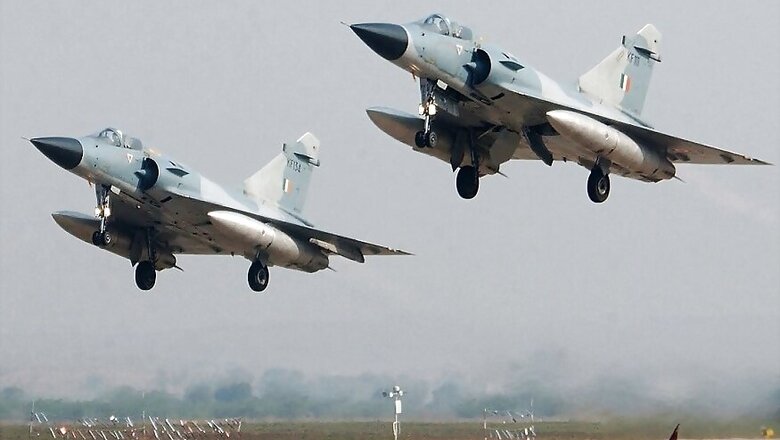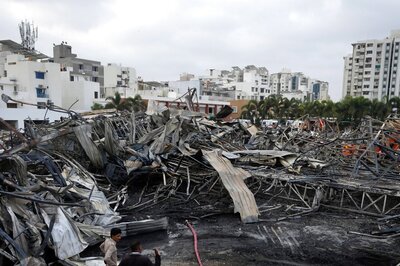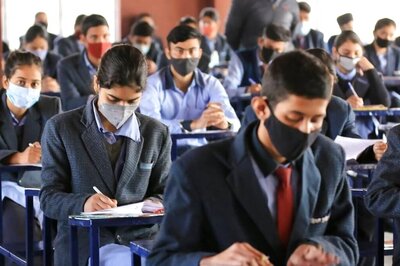
views
US President Donald Trump has claimed that he had played an important role in the current de-escalation of conflict between India and Pakistan that was triggered by a terrorist attack in Kashmir leading to the death of 40 CRPF jawans.
The United States has always played a direct or indirect role in India-Pakistan conflicts and the current role of Washington is not new.
During the first Indo-Pak war in Kashmir in late 40s, Washington stayed neutral and imposed an arms embargo against the warring parties. During the 1965 war, the US policy remained the same that enraged Pakistan, by then a strategic ally of America.
The US tilt towards Pakistan was outright clear during the 1971 war that ended with a crushing defeat of Pakistan.
During Pakistan's Kargil misadventure in 1999 in the aftermath of nuclearisation of the subcontinent, the US role was more pronounced.
Then US President Bill Clinton came down heavily on Pakistan and appreciated Indian restraint and localisation of the military engagement to Indian side of the border. The US could not be a spectator when two new nuclear weapon powers engaged in military exchanges.
President Donald Trump perhaps faced a bigger challenge when Pakistan-backed terrorists hit the convoy of the Central Reserve Police Force in Pulwama killing dozens of its personnel. None expected India to remain quiet, exercise restraint and not respond strongly.
It was President Trump who hinted that India was about to take a strong action. It was American indictment of Pakistan, a hard-line position against the terrorist act and a sort of go-ahead signal to India to retaliate.
In the absence of an assistant secretary of state for south and central Asia, with no US ambassador in the United Nations nor an American ambassador in Islamabad, the President himself provided the breaking news on critical aspects of the current conflict in South Asia.
When fighter jets of the Indian Air Force hit Jaish-e-Mohammad (JEM) headquarters and a training centre deep inside the Pakistani territory across Pakistan-occupied Kashmir, there was no condemnation from Washington.
However, capture of an Indian pilot by the enemy forces and the reported shooting down of Pakistani F-16 by India threatened further escalation of the war.
Trump’s statements against Pakistan’s role in terror activities and his warning to Pakistan against unauthorised use of F-16 were in stark contrast to his sympathy with the victims of the terror attacks in Kashmir.
Yet, it was expected that the Trump administration would put pressure on India and Pakistan to de-escalate in view of the danger of potential use of nuclear weapons.
Two nuclear-armed nations were engaged in a war-like situation in south Asia at a time when Donald Trump was meeting with the North Korean leader in Vietnam to advise him against keeping nuclear weapons.
He could not have advised India not to take strong action against JeM terrorists. But he certainly could pressurise Pakistan to de-escalate as early as possible.
The world understood, as an Afghan analyst Imtiaz Wazir has argued that terming “Indian surgical strike against globally recognised terrorists inside Pakistan as violation to its territorial integrity & sovereignty” would be an “attempt of legitimizing state-sponsored terrorism.”
President Trump was clear that he could not support Pakistan’s retaliation against Indian strike.
Pakistan was responsible for several terrorist attacks in Iran, Afghanistan and India in the same month of February, as earlier. The international community knew that India would not tolerate the capture of an Indian Air Force officer and being kept by a government that had done so little against terrorist groups on its soil.
The result was intense pressure on the Pakistani government to hand over Wing Commander Abhinandan Varthaman. It was not a peace gesture by Prime Minister Imran Khan. It was the outcome of diplomatic hard bargaining and possibly a threat against any attempt to escalate the situation that ended with the pilot’s return to India.
Trump’s role has certainly been crucial. But India’s deft handling of the situation through political, military and diplomatic means deserves admiration.
(The writer is a professor. Views expressed are personal)




















Comments
0 comment